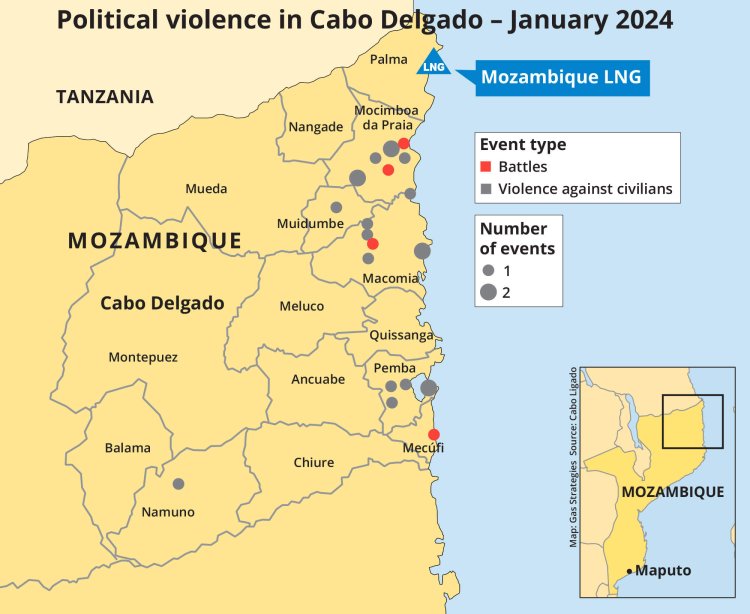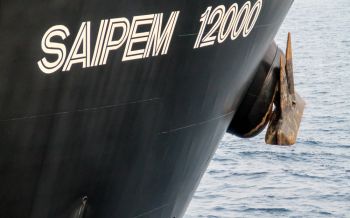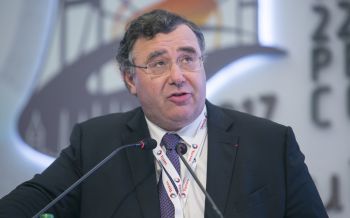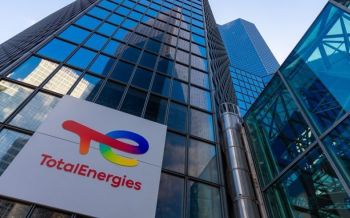- Around 2,000 Rwandan soldiers stationed in Mozambique
- Insurgents have spilled into other provinces, local security analyst says
- Lenders weigh up funding
As TotalEnergies considers the restart of its USD 20 billion LNG project on Mozambique’s Afungi Peninsula, concern is mounting over the spread of extremism in the area.
While attacks have been ongoing in the province of Cabo Delgado since 2017, with the 2021 attack by Islamist terrorist group Al-Shabaab leading the French major to temporarily halt the project and declare a force majeure, recent insurgency — each month since the start of the year — has returned the spotlight on the issue of security.
Businesses and teams who work in the region are growing nervous, according to a security expert at Focus Group, which provides intelligence and security assessments for clients working in sub-Saharan Africa.
“We have a bunch of clients sitting in southern Cabo Delgado province and they are not happy at the moment with what’s going on, of people being very afraid,” Tertius Jacobs, local security analyst at Pretoria-based Focus Group, told Gas Matters Today.
“Logistics companies can’t move because the insurgents are threatening the N1 [main national road route] which is the main highway connecting Cabo Delgado to the southern provinces of the country,” Jacobs added.
While the region has been the most targeted by fundamentalists, according to Jacobs, the geographical shift in attacks is a new development.
“We are no longer talking about Cabo Delgado, we are talking about northern Mozambique, because the insurgents have spilled over into Niassa, and they have spilled over into Nampula province. This year actually is the second time that they have spilled over into that province. So, the issue is no longer contained in Cabo Delgado specifically. It is a bit broader now, which makes things a bit more complicated,” Jacobs said.
Currently, around 2,000 Rwandan soldiers are stationed in Mozambique to keep on top of the insurgency. Jacobs noted the insurgents “do not like confronting them head on” but warned this could change again in the future.
Recalling the most recent attack in the Mocímboa da Praia district – a target for the insurgents due to its port used for LNG logistics – Jacobs said: “It looked like [the insurgents] were probing the Rwandans.”
The growing apprehension comes as the partners in the TotalEnergies-led Mozambique LNG project, which stalled three years ago because of Islamist extremism, continue to work towards resuming construction later in 2024 – despite a rise in militant attacks after a year of relative calm.
Meanwhile, lenders are reviewing the release of billions to complete the project: US Export-Import Bank, which is tied to some USD 4.7 billion in financing, is among those considering loan plans, Bloomberg reported on 1 March.
In response to Gas Matters Today’s request for clarity on financing, a TotalEnergies spokesperson said: “As a general rule, we never comment on the financing of our projects.”
TotalEnergies has been re-mobilising its engineering contractors and CEO Patrick Pouyanné recently confirmed the partners would give the green light when financing had been finalised.
However, much will depend on how much further the recent wave of attacks escalates, not least because of the impact that security concerns will have on financing negotiations for the so-called mega-project.
“What I want to avoid at all costs,” Pouyanné said in a 1 March statement, “is to decide to bring people back on-site and then to have to get them all out again. That would be a very complex situation to handle.”
Pouyanné’s view on the complexity resonates with Jacobs. He said that in the first two months of 2024 there have been more than half as many attacks as during the whole of 2023.
But Jacobs said TotalEnergies’ 25-km security cordon around the LNG project, which it had agreed with the Mozambican government, is insufficient.
“We say that's too close. You need 50 km at least,” he said, noting a marked difference in the risk appetite of Focus Group’s clients in the logistics and construction industries, who are not currently contracted to work directly with TotalEnergies.
The French company would not be drawn on how it is dealing with security issues, following a request from Gas Matters Today.
A spokesperson for TotalEnergies said: “In accordance with our Company policy, for understandable reasons, we never make comments on security matters related to our operations.”
Supply diversification
The partners in Mozambique LNG nevertheless appear determined to resume construction because of the project’s attractions.
If it goes ahead as planned, its first-phase production capacity of 13.1 mtpa will contribute to the global LNG balance ahead of a looming supply-demand gap expected to emerge in the early 2030s. Moreover, from a buyer perspective, it will provide supply diversification in the face of the growing market dominance of the US and Qatar, where vast new liquefaction capacity is under construction.
Significantly, the long-term offtake contracts that underpin the project and its financing mostly remain in place. Only one buyer has failed to renew a commitment to take 1 mtpa, according to Pouyanné, part of which will be lifted and sold by TotalEnergies.
The project is also hugely important to the 30 million people of Mozambique, which – despite economic progress over the three decades since a long and bloody civil war ended in the early 1990s – remains one of the world’s poorest and least developed nations.
Its importance to the government is heightened by 2024 being an election year. President Filipe Nyusi, in power since 2015, faces re-election in October.
The potential contribution of LNG to Mozambique’s economy was highlighted by an International Monetary Fund (IMF) report at the end of 2022, which forecast that the start-up of the Eni-led Coral Sud Floating LNG (FLNG) project in October of that year would boost the country’s GDP growth by 1.3% in 2023 to 5.0% – “rising further in 2024 and 2025”.
With a production capacity of 3.4 mtpa, Coral Sud – the country’s first LNG project – is much smaller than the first phase of Mozambique LNG.
Force majeure
Work on Mozambique LNG ground to a halt in April 2021 when TotalEnergies declared force majeure because of a deteriorating security situation in Cabo Delgado.
Construction was in full swing when a terrorist attack hit the town of Palma, which lasted for days and led to many deaths, with estimates ranging from dozens to over 1,000 fatalities. Responsibility was subsequently claimed by the Islamist terrorist group known as Al-Shabaab.
Hopes grew in May last year that a restart might be feasible with the publication of a report commissioned by TotalEnergies into the humanitarian situation in the province. Dr Jean-Christophe Rufin – who has carried out numerous humanitarian missions across the world – concluded that the security situation had improved significantly over the course of 2022 and into 2023.
At the same time, the partners in Mozambique LNG agreed a USD 200 million budget for a new foundation to implement humanitarian and socio-economic projects in Cabo Delgado. They stressed that the budget would be provided “without waiting for the revenues expected during the production phase”.
TotalEnergies confirmed at the start of this month that the Pamoja Tunaweza Foundation was officially registered at the end of 2023 and is now operational, “engaging with all its stakeholders in order to roll out its actions in the best possible way”. “Pamoja Tunaweza” means “together we can” in Kiswahili.
Dr Rufin is currently back in Mozambique on a follow-up mission – “to check implementation of the action plan that was launched in January 2024,” he said – the results of which are likely to provide more clarity on the likelihood of a restart of engineering works in 2024.
TotalEnergies has said the Mozambique LNG “is currently not engaging in any construction activities” on the site related to the LNG plant. But Jacobs said: “We’ve spoken to people who have seen movement on site. I believe some smaller contractors have been operating to a very limited extent – but officially they have not returned yet.”
Contractors “gearing up”
What is not in doubt is that contractors are keen to return, despite Pouyanné’s insistence on numerous occasions that costs must be kept close to initial quotes to keep project economics on track.
The CEO of Italian contractor Saipem, Alessandro Puliti, confirmed that “as contractors we are gearing up and organising all the engineering activities for the restart and the logistic organisation for the restart”. He remains optimistic that construction will resume in the middle of this year, despite the rise in insurgency.
READ Saipem CEO hopeful on Mozambique LNG: ‘We are gearing up ... for the restart’
“[TotalEnergies] are convinced the Rwandans will come to their aid,” Jacobs said. However, he said there may also be possibilities that insurgents put IEDs [improvised explosive devices] in the road.
“But they likely have a very deep insight into what the president knows and is reported to him every day ... they believe that they have a good grip on what’s going on, which is fair,” Jacobs added.
- PS, APF
Updated on 13/03/2024 to clarify Focus Group's clients are not currently directly contracted to TotalEnergies.
Subscription Benefits
Our three titles – LNG Business Review, Gas Matters and Gas Matters Today – tackle the biggest questions on global developments and major industry trends through a mixture of news, profiles and analysis.
LNG Business Review
LNG Business Review seeks to discover new truths about today’s LNG industry. It strives to widen market players’ scope of reference by actively engaging with events, offering new perspectives while challenging existing ones, and never shying away from being a platform for debate.
Gas Matters
Gas Matters digs deep into the stories of today, keeping the challenges of tomorrow in its sights. Weekly features and interviews, informed by unrivalled in-house expertise, offer a fresh perspective on events as well as thoughtful, intelligent analysis that dares to challenge the status quo.
Gas Matters Today
Gas Matters Today cuts through the bluster of online news and views to offer trustworthy, informed perspectives on major events shaping the gas and LNG industries. This daily news service provides unparalleled insight by drawing on the collective knowledge of in-house reporters, specialist contributors and extensive archive to go beyond the headlines, making it essential reading for gas industry professionals.






